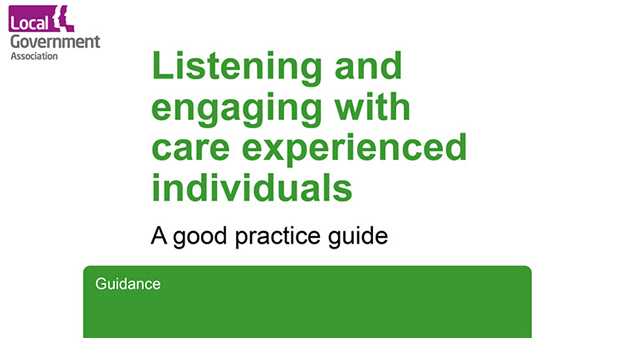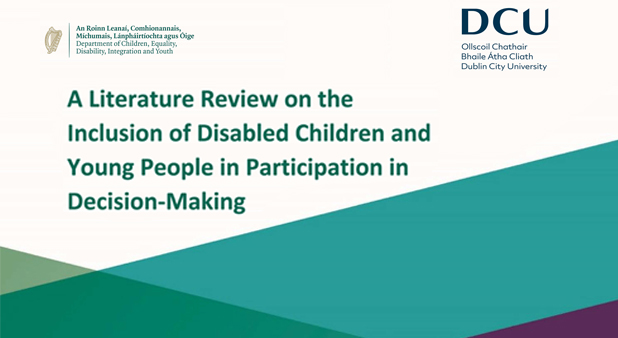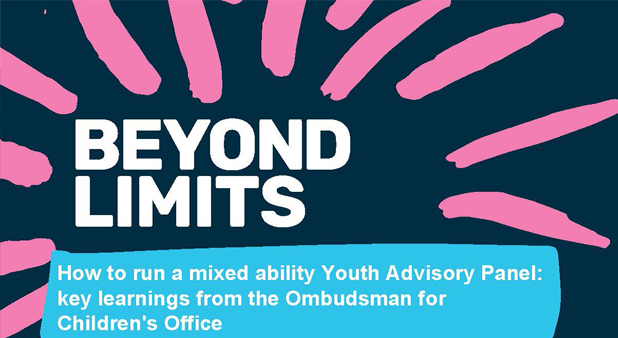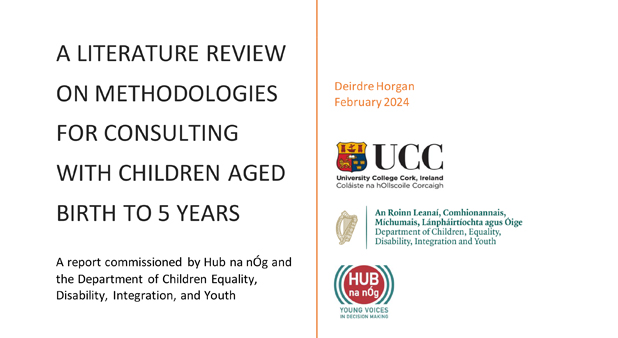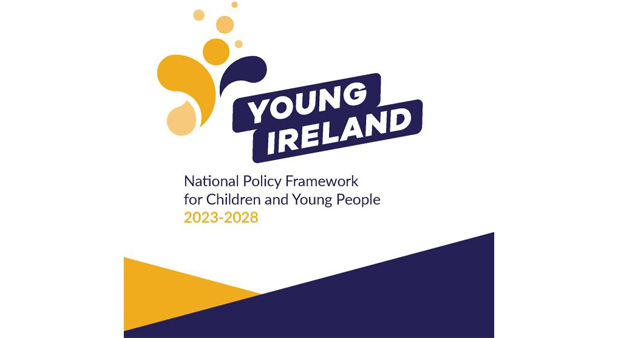This report considers the participation of our youngest citizens from birth to 5 years and how this can be embedded in early childhood education and care in Ireland. Limitations of existing research have been highlighted by Correia et al. (2019) who state that there was no systematic review mapping international empirical research on young children’s right to participate in ECEC settings. Even that systematic review focuses on 3–6-year-olds and does not include very young children, nor did it include children with special needs. This literature review explores issues relating to what Cassidy et al (2022) describe as a complex, challenging and under researched area. It is understood that there is no such thing as children’s ‘voice’, rather children have a multiplicity of voices and these can be accessed in a variety of ways (O’Toole and Hayes, 2020). Given this understanding, practices need to be developed to support children’s participation from the earliest age. The aim of this literature review, then, is to provide policymakers and early years educators with a synthesis of the existing research in the field, allowing for a deeper understanding of current thinking with a comprehensive evidence-base on participation-related ideas, practices and outcomes in early years, highlighting state of the art and informing possible pathways to move the field forward.


